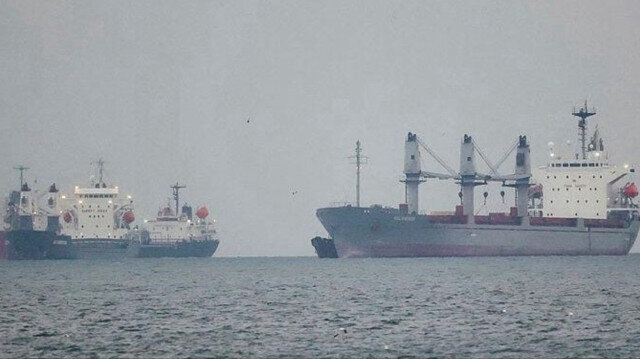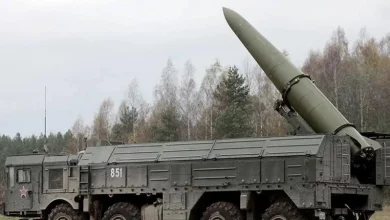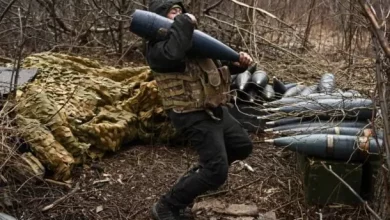China backs ‘effective’ implementation of Black Sea grain deal

Ambassador Zhang tells UNSC ‘unilateral’ sanctions drawing opposition from a growing number of countries
Welcoming the expansion of aid to all affected populations in conflict-hit Ukraine, China has put its weight behind the “full implementation” of the Black Sea grain deal.
“China supports the balanced, full, and effective implementation of the Black Sea Green Initiative and the MoU (memorandum of understanding) on the export of Russian food and fertilizers,” Ambassador Zhang Jun, China’s top diplomat at the UN, told the UN Security Council (UNSC).
Zhang said China supports the UN in “playing an important role in this regard to remove the real obstacles facing the export of Russian food and fertilizers.”
Türkiye, Russia, Ukraine, and the UN held a two-day high-level meeting in Istanbul last week to discuss extending the grain deal, which is set to expire on May 18, but no agreement was reached yet.
Pointing to the “extremely dire” humanitarian situation in Ukraine, Zhang warned: “The spillover effects of the crisis continue to manifest themselves.”
“The spillover effects of the conflict … should be taken seriously and managed. The world economy is faced with renewed risks of recession, which calls for coordinated actions by all countries to jointly keep global food, energy, and financial markets stable,” he added.
Zhang urged the US and “other relevant countries” to “seriously reflect upon their behavior, immediately mend their ways and create conditions for developing countries to grow their economies and improve livelihoods.”
“They must refrain from engaging in economic coercion on one hand, and on the other cooking up narratives accusing other countries of economic coercion,” he said, adding that unilateral sanctions “have no basis in international law, and are drawing the aversion and opposition from a growing number of countries.”
– Nuclear safety
Urging Russia and Ukraine to “spare no effort in protecting the safety of civilians and civilian facilities,” Zhang said: “The red line of nuclear safety must never be crossed.”
“Nuclear weapons must not be used and nuclear wars must not be fought. The safety and security of nuclear power plant facilities in Ukraine concern the safety and well-being of hundreds of millions of people,” he said.
Calling for maximum restraint and for avoiding words and deeds that “could exacerbate confrontation and lead to miscalculations,” the Chinese diplomat said communications between International Atomic Energy Agency, Russia, and Ukraine “play a crucial role in safeguarding the safety and security of civilian nuclear facilities.”
Emphasizing the “greatest sense of urgency” for a political settlement of the crisis, Zhang said: “Any comprehensive solution always begins with the first step and the assumption of dialogue and negotiation cannot wait indefinitely.”
“All parties should create conditions for advancing dialogue and negotiation instead of adding fuel to the fire and escalating tensions in an attempt to profit from it,” he said.
Zhang told the UNSC that China’s envoy on Eurasian Affairs, Ambassador Li Hui, has begun his visits to Ukraine, Poland, France, Germany, and Russia “to engage with all parties on the political settlement of the Ukraine crisis.”





